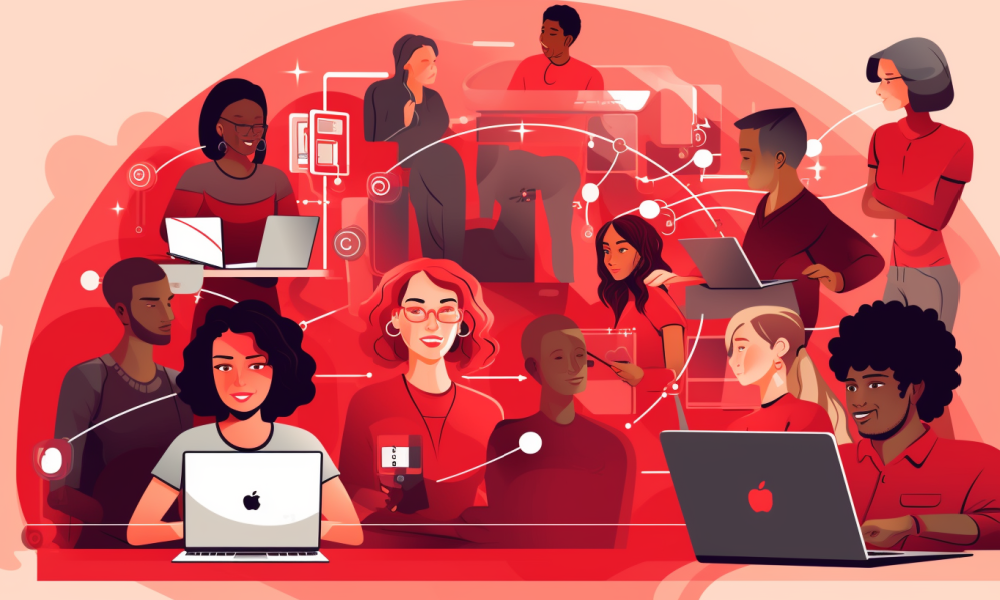How HR can beat consultancies to win the race for AI operationalization
- 6 Min Read
“We would be neglectful if we allow third-party consultancies to come in and do the work that we should be leading,” argues Hung Lee on the pursuit of human-centric AI adoption
- Author: Hung Lee
- Date published: Jul 13, 2023
- Categories

In the fast-evolving landscape of talent acquisition (TA), the rise of artificial intelligence (AI) has brought excitement, anxiety, and the promise of billion-dollar investments from global consultancies. HR and TA leaders are grappling with AI operationalization for the health and longevity of their organizations, careers, and the future of work.
Talent acquisition and HR expert Hung Lee joins HRD Connect for an exclusive Q&A where he emphasizes the need for HR and TA leaders to overcome AI anxiety and win the race for AI operationalization. By doing so, they can bring the necessary and delicate balance between adoption and human considerations to ensure AI enables, rather than replaces, our workforce.
1) What is AI anxiety and how does it impact HR and TA leaders?
Hung Lee: Everyone is aware that this is a very significant inflection point. On the one hand, we see the obvious productivity gains that we might get from using AI. But at the same time, that’s causing us to have anxiety about what it means for our organizations going forward.
We can see the utility for our personal use, but what does it mean for the industry? What does it mean for future-proofing my career and my job security? What does it mean for my organization and its people? Everyone has the initial sense of thrill, but soon the anxiety settles in.
2) Why should HR and TA leaders position themselves as coaches or ‘AI enablers’ across the business?
Hung Lee: Accenture [at the time of interview] just announced a $3 billion investment into their AI and data function, increasing headcount to 80,000 Associates. That means that 80,000 Accenture associates are about to start AI-enabling companies across the globe. And that’s just one company. Associates from all types of consultancies will work with CEOs and CFOs, to cut down the headcount of the business.
Before external consultants do this in the name of AI enablement, HR and TA have an opportunity to step into the organization and align the AI enablement process with the values of the organization and appropriate for its cultural context. We would be neglectful if we allow third-party consultancies to come in and do the work that we should be leading.
3) How will winning the race for AI operationalization equip TA leaders to improve their strategic impact?
Hung Lee: The worst thing to do is ignore it. Adoption rates for AI are going Northeast, as is the volume of AI tools and public announcements from significant organizations as to how AI has changed their workforce planning. IBM has said they’re going to put a halt on their anticipated hiring for 7,800 jobs they expect AI will be able to replace in the next five years.
When companies make this type of announcement, it’s something that we have to take seriously. The smart thing to do is to embrace it and play the role of AI enablers in your department and even the rest of your business.
4) What are the basic or crucial introductory steps for TA leaders to take when rolling out AI?
Hung Lee: Before you do anything, you need to have a visceral understanding of the tooling. One of the big dangers is TA or HR leaders being distant from the tools. They may read recommendations or listen to a podcast, but it’s a precursor to getting intimate with the tools.
When HR was digitalizing analog processes in the 90s, leaders were making digital technology decisions without any idea of how to use them. Imagine setting an email policy having never sent an email. Set aside time from all your other work, be it in your personal life or professionally, and gather a degree of intimacy with the technology you’re about to make decisions on.
5) Can you share any other applications of AI operationalization in TA that might not be as immediately obvious?
Hung Lee: Certain buckets of activity are increasingly low-hanging fruit. If you’re trying to get intimate with the technology, you should be using them. For example, message composition. Or image, video, sound, or media creation.
Before HR and TA leaders start dismissing this as the work marketing might do, consider: How much time are you spending doing internal reports? How much time are you spending on slide decks or internal communications? These are places where you can apply AI technology and save heavy lifting. Another area is L&D. The ability to rapidly consume or identify information that could help level your skill set is a very clear use case that intimately connects with important HR work.
6) How can TA teams balance their adoption of AI with human considerations?
Hung Lee: There are two areas where AI will not be able to replace humans. AI is trained on existing data. It will spot patterns and typically roll out a standardized ideal recommendation. So, the first area where AI will need human capability is whenever there is a novel configuration. Take, for example, an electrician. Each electrician wires a property differently. If you take this into the white-collar world, that’s also true for cultural processes within businesses. When someone implements a model, process, or practice, they adapt and customize it.
The second bucket is institutional knowledge. AI is trained primarily on documented data. We’ve thought about information, reflected on it, and produced texts on it. But we do not document plenty of human communication. We imply meanings and understand them through experience. The manual captures a snapshot of the ideal case, but everyone knows day-to-day operations are deviant from the manual. Human practice becomes very different from what AI is trained on.
This also includes emotional intelligence (EQ). You understand how other people feel through intuition. Indeed, one of the key elements of good management is the ability to understand what is not being said and being able to stage interventions before things have to be said. AI will take on the automation work, where humans will still be collaborative, creative, and cultural.
It will always be more expensive, and will never pass compliance, to find a way for AI to track every piece of undocumented information rather than to get a human to process these activities.
_______________
This interview was conducted by Benjamin Broomfield, Senior Editor, HRD Connect.









